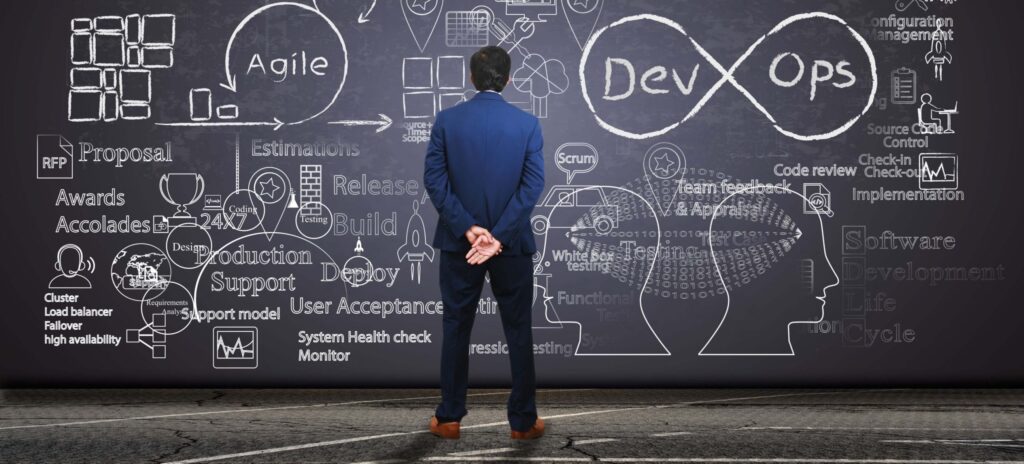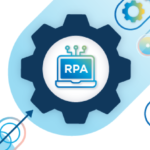Top 9 Skills that a Successful DevOps Engineer Must Have

In today’s rapidly evolving world of software development and IT operations, the role of a DevOps engineer has become increasingly vital. DevOps engineers are the bridge between software development and IT operations. They are responsible for automating and streamlining the continuous integration and delivery (CI/CD) pipeline, enhancing collaboration, and ensuring the stability and reliability of applications and systems. To excel in this dynamic field, a successful DevOps engineer must possess a unique skill set that combines technical expertise, problem-solving abilities, and effective communication.
This discussion will explore the critical skills and competencies essential for a DevOps engineer to thrive in this demanding and rewarding profession. From automation and scripting proficiency to a deep understanding of cloud technologies and containerization, these skills are the foundation upon which DevOps engineers build efficient, scalable, and resilient software delivery pipelines.
9 Technical Skills to Look for When Hiring DevOps Engineers
When hiring DevOps engineers, it’s crucial to identify candidates with the right technical skills to effectively bridge the gap between development and operations, streamline processes, and enhance system reliability.
Here are nine technical skills to look for when hiring DevOps engineers:
Automation Skills:
Automation is a fundamental skill for DevOps engineers and is essential in modern software development and operations. DevOps engineers excel at automating various aspects of the software delivery pipeline, from code integration and testing to deployment and infrastructure management. They write scripts and use specialized tools to streamline repetitive tasks, ensuring consistency and efficiency. Implementing automation reduces the risk of human errors and speeds up the development process.
This skill extends to configuration management, where DevOps engineers leverage tools like Ansible, Puppet, or Chef to automate server provisioning and configuration. In addition, they master Continuous Integration/Continuous Deployment (CI/CD) pipelines to automate code testing and deployment, fostering a culture of rapid and reliable software releases. DevOps engineers also embrace containerization and orchestration tools such as Docker and Kubernetes, enabling the automation of application deployment and scaling in containerized environments. Automation is the backbone of a DevOps engineer’s toolkit, allowing them to deliver software faster, with higher quality, and at scale.
Containerization Knowledge:
When evaluating candidates for DevOps engineer positions, a firm grasp of containerization knowledge should be high on the list of skills to seek. In the modern software development landscape, containerization has emerged as a game-changer. DevOps engineers who excel in this domain possess the expertise to harness containerization platforms like Docker effectively. They should be adept at creating Docker containers, crafting Dockerfiles, and navigating the Docker ecosystem, ensuring the consistency and reliability of application deployments.
Additionally, candidates proficient in container orchestration tools such as Kubernetes bring immense value. Kubernetes automates the management of containerized applications, making it indispensable for scalable and resilient infrastructures. Furthermore, a deep understanding of container security is crucial, as DevOps engineers need to safeguard containerized environments against potential threats and vulnerabilities. In sum, containerization knowledge is a foundational skill that empowers DevOps engineers to streamline development pipelines, enhance scalability, and bolster the security of modern software systems.
Continuous Integration and Continuous Deployment (CI/CD)
When hiring DevOps engineers, one of the most critical skills to prioritize is expertise in Continuous Integration and Continuous Deployment (CI/CD). These practices are the bedrock of modern software development, emphasizing automation and collaboration to accelerate the delivery of high-quality software. DevOps engineers proficient in CI/CD possess the knowledge to design, implement, and maintain robust CI/CD pipelines. They should be well-versed in tools like Jenkins, Travis CI, GitLab CI/CD, or CircleCI, which automate application building, testing, and deployment.
Additionally, they understand the importance of version control systems, like Git, and how to integrate them seamlessly into the CI/CD process. Creating efficient and reliable pipelines speeds up development cycles and ensures code quality through automated testing, resulting in faster and more reliable software releases. DevOps engineers skilled in CI/CD are invaluable assets for organizations striving to achieve agility and efficiency in their software development workflows.
Version Control Systems (VCS)
When assessing candidates for DevOps engineer positions, a strong command of Version Control Systems (VCS) should be high on the list of desired skills. VCS, with Git as the most prevalent example, is the backbone of collaborative software development. Proficient DevOps engineers understand the nuances of VCS and are skilled in leveraging its capabilities to manage and track changes to source code efficiently. They should be capable of setting up and configuring Git repositories, creating branching and merging strategies, and resolving conflicts effectively.
Moreover, they understand the importance of versioning for source code, infrastructure as code (IaC), and other critical configurations. Their expertise in VCS ensures the traceability, reproducibility, and collaboration necessary for successful DevOps practices. They are invaluable in fostering a culture of efficient, transparent, and collaborative development and deployment processes.
Infrastructure as Code (IaC)
A firm grasp of Infrastructure as Code (IaC) is a pivotal skill when evaluating candidates for DevOps engineer positions. IaC represents a transformative approach to managing and provisioning infrastructure using code and automation, and DevOps engineers who excel in this domain are invaluable assets. Proficient IaC practitioners are well-versed in tools like Terraform, AWS CloudFormation, or Ansible and can create, modify, and maintain infrastructure using code. They understand the benefits of IaC, such as version control, reproducibility, and scalability, and can design and implement infrastructure templates that ensure consistency across development, testing, and production environments. Their ability to treat infrastructure as code streamlines deployment processes, minimizes errors and accelerates scalability, contributing significantly to the DevOps goal of achieving fast, reliable, and automated software delivery.
Cloud Computing
When hiring DevOps engineers, a robust knowledge of cloud computing is a fundamental skill that should not be overlooked. Cloud computing has revolutionized how organizations manage their infrastructure, making it more flexible, scalable, and cost-effective. DevOps engineers proficient in cloud computing platforms such as AWS, Azure, or Google Cloud possess the expertise to design, deploy, and manage cloud-based infrastructure.
They understand the intricacies of provisioning and configuring cloud resources, optimizing costs, and leveraging cloud-native services. Moreover, they can seamlessly integrate cloud services into the CI/CD pipeline, enabling automated deployments and scaling. In an era where cloud adoption is pervasive, DevOps engineers with cloud computing skills play a pivotal role in ensuring modern software systems’ scalability, reliability, and efficiency, making them invaluable assets to any organization.
Monitoring and Logging Tools
A solid proficiency in monitoring and logging tools should be a top priority when considering candidates for DevOps engineer roles. Effective monitoring and logging ensure software systems’ availability, performance, and security. DevOps engineers skilled in this area are well-versed in tools like Prometheus, Grafana, and ELK Stack (Elasticsearch, Logstash, Kibana). They can design and implement comprehensive monitoring solutions that track system health, resource utilization, and application performance in real time.
They also understand the importance of centralized logging, allowing for the collection, analysis, and correlation of log data to troubleshoot issues swiftly and proactively identify trends or anomalies. Their expertise in monitoring and logging helps maintain system reliability and contributes to continuous improvement by providing valuable insights into system behaviour. DevOps engineers with these skills are crucial in enhancing system resilience and reducing downtime, making them indispensable for organizations committed to delivering reliable, high-performance software solutions.
Security Knowledge
When seeking to hire DevOps engineers, a deep understanding of security is a skill that cannot be underestimated. Security knowledge is crucial in today’s digital landscape, where data breaches and cyber threats are too common. DevOps engineers with security expertise are adept at integrating security measures seamlessly into the DevOps workflow. They are well-versed in best practices for securing code repositories, implementing access controls, and safeguarding sensitive data. Furthermore, they understand the importance of vulnerability assessment and penetration testing to identify and address security weaknesses in applications and infrastructure. Their ability to design and enforce security policies, implement security automation, and respond effectively to security incidents is invaluable.
In a world where security is a top concern for organizations, DevOps engineers with strong security knowledge play a pivotal role in ensuring that software is developed and deployed with the highest level of protection, reducing the risk of security breaches and protecting the reputation and assets of the organization. Thus, security knowledge is a critical skill to prioritize when hiring DevOps engineers.
Networking Skills
When evaluating candidates for DevOps engineer positions, an often underestimated yet crucial skill is proficiency in networking. In DevOps, strong networking skills are essential because they enable seamless communication between various distributed system components. DevOps engineers with networking expertise can design and configure complex network topologies, troubleshoot connectivity issues efficiently, and optimize application network performance. They understand key networking concepts such as TCP/IP, DNS, load balancing, and security protocols.
Moreover, they can work effectively with virtual private clouds (VPCs) in cloud environments, ensuring secure and efficient data transfer between on-premises and cloud-based resources. A solid foundation in networking ensures that applications are highly available, responsive, and secure, making DevOps engineers with these skills invaluable assets for organizations striving to achieve seamless and reliable software deployments. Hence, networking skills should be a priority when hiring DevOps engineers.
Conclusion
In conclusion, successful DevOps engineers possess a dynamic skill set that allows them to bridge the gap between development and operations seamlessly. These professionals are proficient in programming and scripting languages and excel in essential areas such as automation, configuration management, and CI/CD pipelines. Their knowledge of containerization, infrastructure as code, and cloud computing is crucial for modern software development and deployment. Additionally, they understand the significance of monitoring, logging, security, and networking, ensuring software systems’ reliability, performance, and security. In an ever-evolving technological landscape, a DevOps engineer armed with these top nine skills is well-equipped to drive efficiency, collaboration, and innovation in the software development process, ultimately contributing to the success and competitiveness of the organization.
Author Bio :
Ashish Jain is the global head of offshore strategic partnerships at AddWeb Solution, a renowned DevOps Consulting Company delivering innovative solutions to meet clients’ needs. With a solid commitment to excellence and a customer-centric approach, Ashish ensures that AddWeb Solution remains at the forefront of the industry, providing innovative and scalable solutions that drive digital success.





